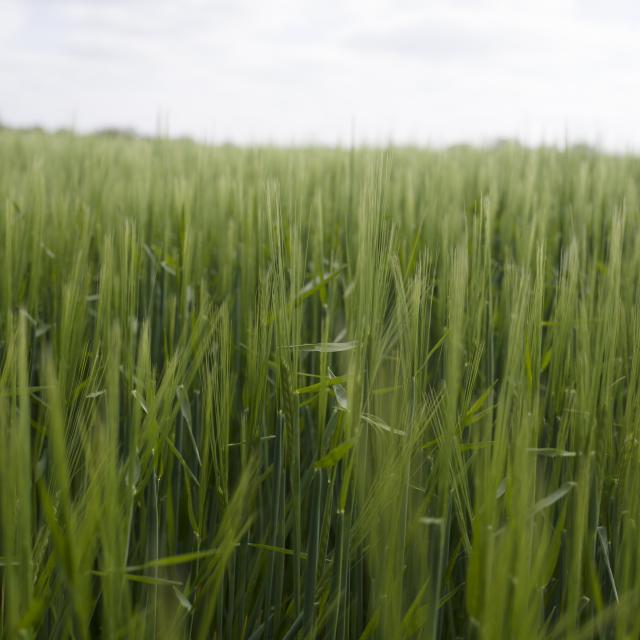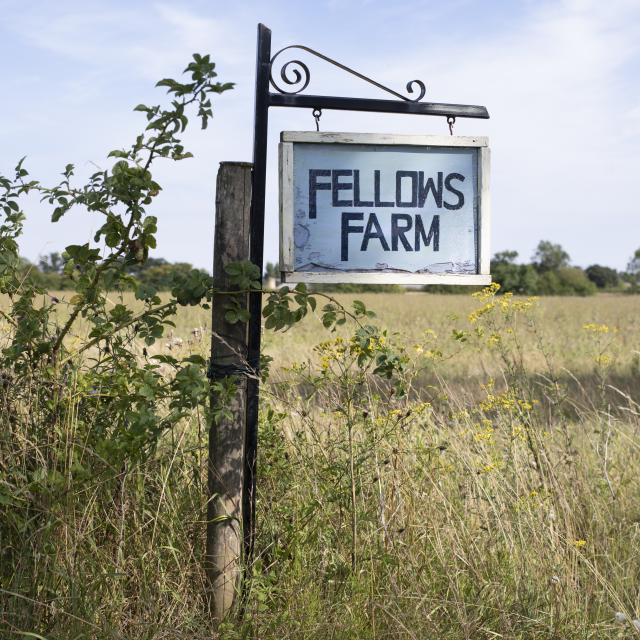Learning from Fellows Farm
Armenian Plum Tomatoes. Mezdi Sweetcorn. Ishikura Spring Onions. Striato Di Napoli Courgettes. Trombetta Squash. These are some of the varieties that you’ll find on your plates at e5 Bakehouse and Poplar Bakehouse this summer. They’re the seeds we sowed in Spring, the plants we’re caring for now, and the fruits/vegetables we’re delivering to our East London restaurants from our market garden in Suffolk this summer. If you’ve visited the e5 bakehouse, you’ll know that we mill our own cereals for baking in our bread. Since 2014, we’ve been growing those grains ourselves as well, and since early 2020 we’ve been growing a lot of our own fruits and vegetables too. Knowing where our food comes from and how it’s being produced has always been important to us, but since we’ve started growing we’ve become even more invested in learning about the journey that our food goes on from field to plate.
And we’re learning a lot. Every day. Whilst we know a huge amount more than when we started farming a few years ago, the experimenting, the failures and the aha! moments keep on coming. Anyone who grows anything will know this; there is always more to learn and always new people to learn from. From our trusty Charles Dowden book, to like minded agroecological farmers on social media; from our peers in the East Anglian Grain Alliance to the people that volunteer their time and share their experiences with us; we are continually informed and influenced by the incredible range of people working towards better food systems across the UK and further afield. So, in the interest of working in the open and sharing as we go, we’re taking a moment to reflect on our learning so far. In this update from Fellows Farm, new team member Melissa speaks to our Founder and Director, Ben, to learn more about what’s happening on the farm…
Q: Fellows Farm has many different elements; there’s the market garden, the vineyard, the lambs and the microbakery. How would you describe the overarching vision for Fellows Farm?
A: In terms of the holistic vision, it’s an evolving concept. Overall, it's about trying to find ways to balance biological diversity with a financially viable business model. The no dig, organic market garden and food production is at the heart of it all, as somewhere around which people can gather to share food, learn about organic growing for their own projects, experience the therapeutic benefits of growing and build connections with others. We are dedicated to making and growing food that is healthy, for ourselves and for the planet, and sharing this process openly with as many people as possible. We’re also utilising the barn and wider farm for events and gatherings; hosting visitors and volunteers; developing new partnerships and collaborating with other local businesses whilst keeping the link with e5. We’re aiming to supply more bakeries and mills with the wheat we grow, as we have done recently with the brilliant Flor Bakery and Hodmedods.
In terms of the grains we’re growing, we’re now experimenting with an under-canopy of clover, with a view to not having to turn the soil. This is a tricky thing to achieve in organic growing, however, hopefully, having a thick enough under-canopy of clover will suppress weeds and fix nitrogen. Then perhaps some form of spring harrowing will break the clover up so it's not completely smothering the wheat seed when it's applied, which is some feedback we’ve had from other farmers who are doing this. Then we’ll either broadcast or drill the wheat directly into that. We’ll also be planting our population wheat (Lys Brun), which has the benefit of being able to adapt to a slightly variable climate and scavenge for nutrients more readily. Then we hope to permanently crop wheat so we have a consistent supply for e5’s bakeries.

We’re also looking at potentially installing a wine making rig, so we could be making a couple thousand litres of grape juice to ferment. It would be wonderful to do that in a low intervention, natural way in the coming years. The fruit trees we planted in the last few years will also start maturing, so we have the option to press and work with those fruits in different ways, such as juice or preserves.
Q: In the last few years you’ve gone from baker to farmer, wearing many different hats in between. What have you learnt about farming that has surprised you and/or that you think more people should know?
A: Entering into this world of land stewardship and food growing I am indeed learning a lot, and also confirming what I have often heard, and you probably have too. For example, despite loving the natural world we have had our fair share of attacks by animals and insects (e.g. slugs decimating whole fields of rye and deer tearing off the guards of hundreds of fruit trees and biting them in half). I still believe that we must move away from using finite resources and practices which damage the soil. I don’t believe in using chemicals and seeing how biodiversity is increasing rapidly at Fellows is a great joy. Of course, we must produce enough food for everyone, but for future generations to have any quality of life it must be done in a nature friendly, agroecological manner.
Q: We all know that farming is incredibly hard work. Who or what inspires you to do this work and keeps you going when it gets tough?
A: Being small scale and enjoying learning by doing, there has been a great physical toll. Barrowing tonnes of compost, planting by hand many thousands of plants, pulling weeds, chasing sheep; it all reminds me of the value of my body and how grateful I am for it. I have been overwhelmed at the community spirit of growers. From the local, mainly conventional, farmers that surround Fellows Farm, to networks such as the Landworkers’ Alliance and regional grain alliances, there is a great deal of comradery. I enjoy a challenge and trying to earn a living through being a farmer, even when you have a captive market (the bakehouse in my case), is still extremely challenging. My admiration for other farmers, which already was high, has only continued to increase. I don’t think I’ll ever quite belong to such a tribe but I enjoy being on the periphery and joining in on the debate.

Q: There is an exciting energy around this kind of farming and lots of new people want to start growing. Do you have any practical lessons to new entrants?
A: Really think about your irrigation! We have a Hunter control box, which allows for zone controlled irrigation. This was a nice thing to introduce at the beginning because it saves so much time and allows for consistent watering. However, we’re beginning to look more into drip rather than sprinklers because drip irrigation is more efficient. Despite the fact we have a bore hole and we’re in really quite a wet place in some regards, we have to be more and more conscious of saving energy and water. Also, doing no dig has been really good for us. Initially we thought we’d have to plough the soil but it was too heavy for that so our hands were forced into no dig. However, it turned out to be a blessing.
Visit the Fellows Farm website or Instagram to find out more about what is happening and opportunities to get involved.




